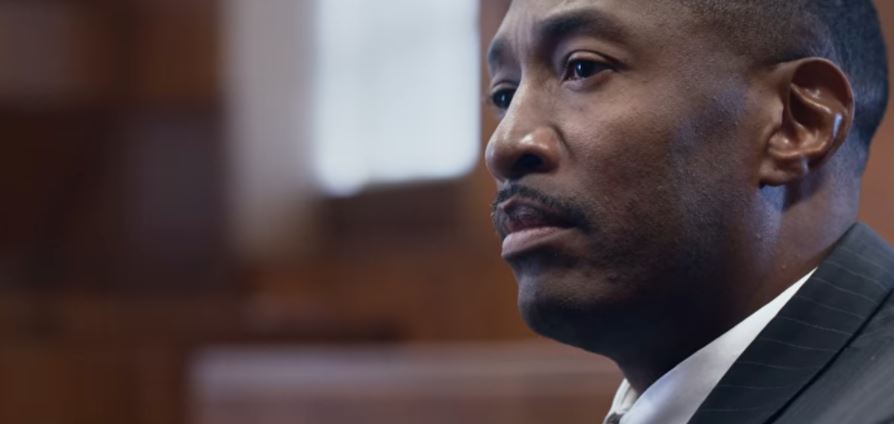Netflix’s ‘Trial 4’ revolves around the story of Sean Ellis, a man who was put on multiple trials before eventually getting convicted of the 1993 murder of a Boston Police Detective by the name of John Mulligan. The true-crime docu-series highlights police misconduct, corruption within the law enforcement, systemic racism, and miscarriage of justice by showcasing exactly why Sean was forced to spend almost 22 years behind bars for a crime he didn’t commit. Only when evidence about all this came to light, Sean was allowed a fourth trial, his last chance at freedom. So, if you’re here wondering how exactly he got exonerated, we have all the details for you.
Sean Ellis’ Settlement: Did He Get Any Compensation?
Sean Ellis’ lawyer, Rosemary Scapicchio always believed that the case against her client was paper-thin. Two of the primary detectives in the murder investigation, Detective Walter Robinson and Kenneth Acerra, whose names were on every crucial report, were not even from the homicide unit. And just months after Sean’s 1995 conviction, they were charged with several counts of federal felonies for misappropriating evidentiary money.

She thought that the corrupt officers had planted the evidence they had against Sean and had likely coerced all the witnesses into giving false statements as well. Furthermore, Sean’s uncle, David Murray, and Sean’s then-girlfriend, Letia Walker, also came out to say that they were personally threatened by either Detective John Brazil or other people on the case to testify against Sean. This revelation only added fuel to the rumors that the victim, John Mulligan, was a dirty cop as well.
Not just that, it also implied that John had been in cahoots with the other officers, which is why they meddled in the case, in the hopes that no one would find out their truth. Ultimately, a connection amongst all of them was found in an old night-shift drug arrest report. And that’s all that Rosemary Scapicchio needed. She filed a re-trial motion with a federal grand jury, claiming that there was enough evidence that the detectives who handled Sean’s case had a conflict of interest.
Scapicchio also showed the court dozens of previously unrevealed police tips that gave specific names and motives of suspected shooters, none of which were pursued. Then, after nine days of evidentiary hearings, Suffolk Superior Court Justice Carol Ball overturned Sean Ellis’ first-degree murder and armed robbery convictions, recommending a re-trial. This verdict was unanimously affirmed by the Massachusetts Supreme Judicial Court in 2016. Therefore, Sean Ellis was granted bail.
Though it wasn’t an exoneration, he had to follow the rules of his settlement. Sean had to wear a GPS device on his ankle at all times, tracking his whereabouts, and he had restrictions around where he could travel and when. Still, the prosecutors pressed ahead, stating that they believed that Sean was guilty and would put him up on trial for the fourth time in September 2019. And Sean was ready for it, thanks to his lawyer, who was keeping him aware of everything.

Sean knew that he was innocent and was determined to prove it, especially now that he had the evidence to back it up. In December of 2018, things took a turn when the District Attorney’s office dropped all the charges against Sean. They cited faded memories of witnesses and the “shameful conduct” of Detectives Acerra, Robinson, and Brazil as the reasons, and how that “presents a major challenge to our ability to put a successful case to a new jury.”
They added that although they were dropping the charges, they still believed Sean to be the one who killed Detective John Mulligan. Their actions, they said, were in no way declaring him innocent. Nonetheless, Sean was given his complete freedom, and all his restrictions were removed. In many post-conviction cases, we see the people suing the police department or the justice system or the State, seeking compensation for their wrongful convictions and the undue distress they were forced to face. However, it doesn’t seem like Sean Ellis has gone down that road.
There’s hardly anyone who deserves a settlement amount as compensation for what one had to go through more than Sean Ellis. But it seems like he is not interested in entering into another legal entanglement. Sean has been exonerated and has his independence and life back. Now, it seems like instead of playing the blame game on who was responsible for his suffering, Sean is just moving on with his life. As he said, despite Boston’s corruption and misconduct, he will walk the streets of the city with his head held high.
Read More: Who Killed Detective John Mulligan?


You must be logged in to post a comment.